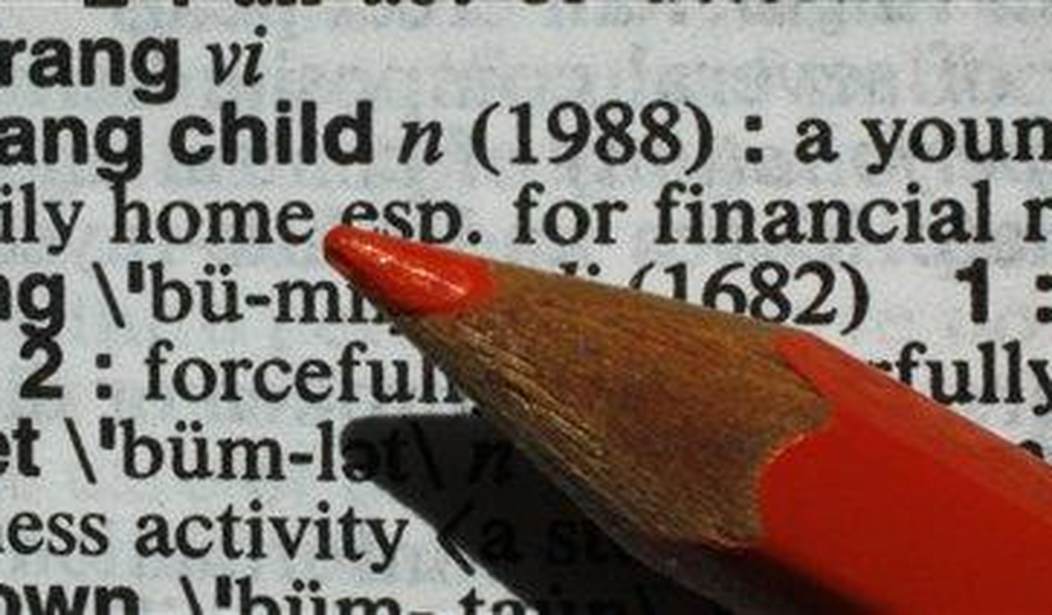Continuing a tradition that’s been going on since 2003, dictionary publisher Merriam-Webster announced their “Word of the Year” for 2021 this week. Another tradition they seem to be following is an attempt to stir up as much controversy and angst as possible by choosing a word that’s bound to get under the skin (pun intended) of as many people as possible so everyone will talk about their selection. So it will likely not come as much of a surprise that they selected “vaccine” for this year’s honors. Now all of the people who are debating on both sides of the mandates can have something else to remind them of a subject that many people would no doubt like to put in their rear-view mirror. (NY Post)
With an expanded definition to reflect the times, Merriam-Webster has declared an omnipresent truth as its 2021 word of the year: vaccine.
“This was a word that was extremely high in our data every single day in 2021,” Peter Sokolowski, Merriam-Webster’s editor-at-large, told The Associated Press ahead of Monday’s announcement.
“It really represents two different stories. One is the science story, which is this remarkable speed with which the vaccines were developed. But there’s also the debates regarding policy, politics and political affiliation. It’s one word that carries these two huge stories,” he said.
You can tell that Merriam-Webster was going for some controversial political hotness with this choice by looking at their first runner-up word. The one that just missed the cut was “insurrection.” If you think that was related to anything other than the January 6 riot you haven’t been paying attention.
Oxford English Dictionary went almost the same route, choosing “vax” for their Word of the Year. Of course, “vax” isn’t really a word, or at least it didn’t use to be. It’s just a shorthand, casual term for vaccinate. Last year, Merriam-Webster went with “pandemic.” You’re probably beginning to sense a theme here.
If you look at the history of M-W’s selections in this category, you can see the way they’ve evolved over time. When they started in 2003 they selected “democracy.” A nice enough choice, I suppose, but most people already know it, at least in America. The following year they went with “blog,” since those were just coming on the scene in a major way. In 2005 they chose “integrity,” which was nice enough.
But in 2006 they began going off the rails. That was the year they selected “truthiness,” in a nod to Stephen Colbert’s schtick. That was followed by the gamer non-word “w00t.” In 2012, likely in a nod to the election battle between Obama and Romney, they declared a tie between “socialism” and “capitalism.” By the time we reached the period from 2016 to 2019, the trend was set in stone. They chose “surreal” (an obvious reference to Trump’s election) followed by “feminism, justice” and “they.” (The last one is used as a pronoun for transgender people rather than its traditional use as a pronoun referring simply to two or more people of any sort.)
It would be nice if these dictionaries could actually use this uninspiring tradition to promote words that are not just applicable to current topics and conversations in a more neutral way, but ones that aren’t known to many people, helping to expand their vocabularies. For example, when I look back on 2021 and try to think of an appropriate nominee, I might have been tempted to pick “authoritarianism.” But that’s still going to be too divisive. So as my own submission I decided to go with “transmedium.” It’s definitely not in common use and it’s applicable to the currently newsy subject of Unidentified Aerial Phenomena. (Nobody is out in the streets fighting over that.)
I’ll refrain from offering up my other alternate suggestions for Merriam-Webster to select. We do try to keep this site PG-13 at a minimum, after all.








Join the conversation as a VIP Member